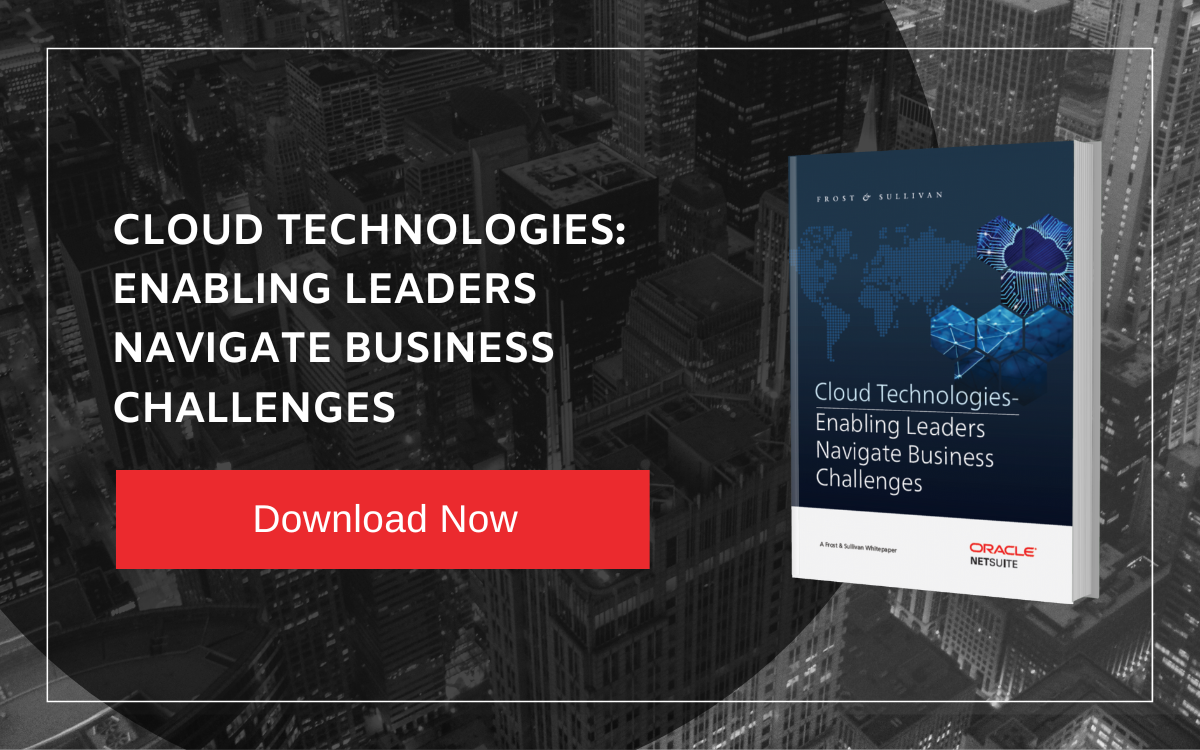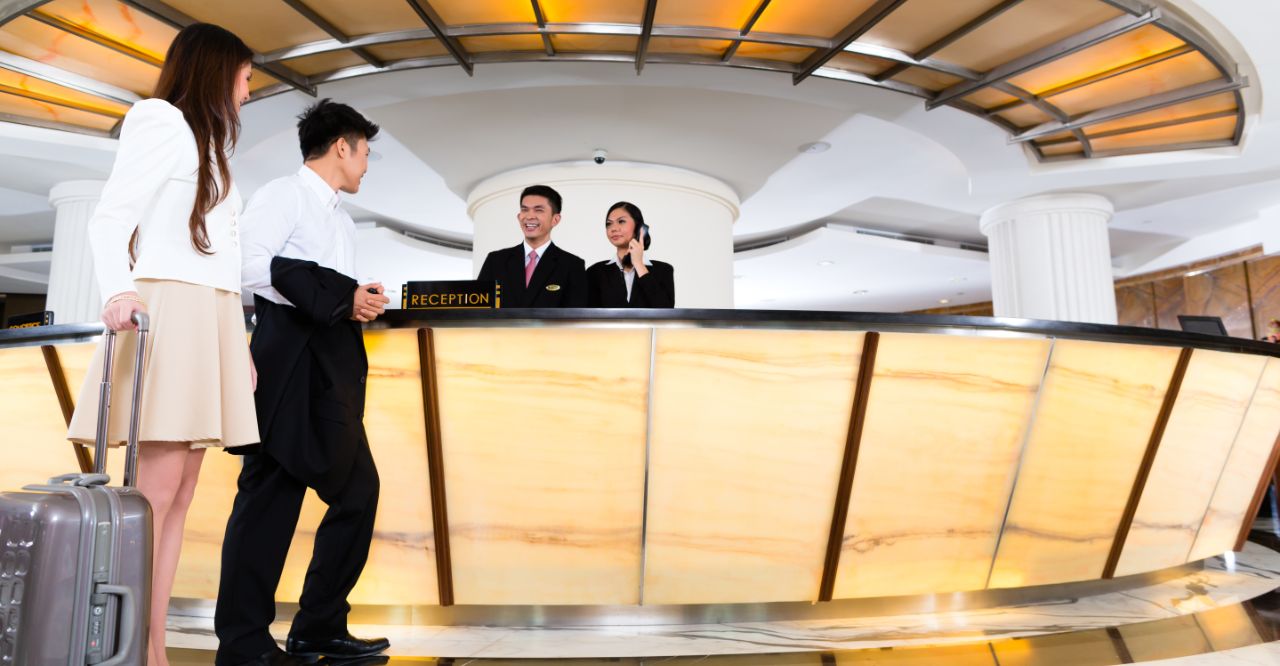The hotel industry is on a roll—even in the aftermath of the COVID-19 pandemic.
In 2021, for example, the global hotel industry was worth $4.13 billion and had a growth rate of 18.5%. Experts expect the industry’s worth to increase dramatically in 2022 and beyond.
Tapping this growth, however, won’t be easy as hospitality is a fiercely competitive industry. To survive in this industry, hotel managers must take their businesses to the next level.
But first, they must overcome the critical industry challenges that can hinder the performance of hotels like yours.
In this article, we’ll examine six critical industry problems that hotels commonly face, and what you can do to overcome them.
Six Key Challenges That Hotels Face In The Industry
1. Personalisation Of Guest Experience: Meeting The Modern Guest’s Demands
%20(1).png?width=1000&name=Guest%20Experience%20(1)%20(1).png) Overview of guest experience flow ; Source: Extreme Networks
Overview of guest experience flow ; Source: Extreme Networks
Modern hotel guests are demanding. So, boosting customer satisfaction is a significant industry challenge—one that's set to intensify thanks to the growing competition and the increased use of customer management tools.
Take Airbnb; it’s become among the hotel industry's biggest threats. Hospitality Net puts Airbnb’s valuation at over US$10 billion—and growing. That’s higher than many large hotel chains, including Hyatt.
Customers who choose traditional hotels over AirBnB do so because they want a more personalised guest experience.
To drive truly personalised and superior customer experiences, however, you need powerful data management technologies to capture, store, analyse, and interpret customer insights on a macro level and in real-time.
For example, an ERP software unifies customer data, and uses it to generate accurate business insights. These help you make informed decisions and makes it possible to personalise the customer experience for each guest.
2. Constantly Changing Guest Demands
%20(1)-1.jpg?width=1000&name=Hospitality-Technology-Infographic-200511%20(1)%20(1)-1.jpg) The importance of contactless technology in hospitality ; Source: Intelity
The importance of contactless technology in hospitality ; Source: Intelity
The COVID-19 pandemic showed hotels how vulnerable they are to external factors outside their control.
It also led customers to expect contactless hotel services to ensure a safe, enjoyable stay, and demand conveniences such as free Wi-Fi and fast check-in/check-out.
A way of generating resilience and business continuity in hotels is to focus on local marketplaces. As a result, staycation bookings rose by 18% between 2020 and 2021.
That’s great. But business travel has been slow to recover from the pandemic, largely thanks to remote and hybrid working models.
As a result, hotels must offer superior working space experiences to attract business travellers as well.
To attract and retain customers for the long term, hotels like yours need to better understand their needs and wants. This particular challenge will remain one of the toughest in the hospitality industry going forward.
5 Reasons Contactless Technology is the Future of Hospitality
Utilising technology that can help you keep track of your customers’ demands and requirements is a good starting point. With this knowledge, you can more easily predict trends in your customers’ requests, such as these, and ensure your hotel is equipped to fulfil them and resolve challenges in the future.
In fact, forward-thinking hospitality companies worldwide are adopting technology to help with everything from contactless mobile check-in to business intelligence to make stays safer for guests and more lucrative for their businesses.
Notably, guests also prefer the use of technology, as 55% of travellers reported that their ideal hotel room lets them disconnect from technology. This is opposed to only 39% looking for advanced technology to power their stay.
That begs the million-dollar question…
Are companies that invest in hospitality technology—especially during a crisis—setting themselves up for failure?
Absolutely not!
1. 62% of guests say that the ability to request service from a mobile phone or tablet is important to them.
Sure, plenty of hotel guests will report severe issues with their stay, but minor issues often go undetected and unresolved. Now, health and safety procedures require fewer guest touchpoints and, therefore, fewer opportunities to check in on the challenges guests face during their stay. Instead of letting problems fester, the ability to request service remotely allows for quick fixes and results in happier guests.
2. 70% of millennials are more likely to book a hotel with tech amenities like keyless entry, Smart TVs, or mobile payments.
As of this year, millennials make up over half of all hotel guests, making them an essential demographic. And while price and location have been the traditional top two priorities, technology is a key booking differentiator and will only continue to become more important in the industry as it empowers distancing and touchless service.
3. 58% of travellers would warmly welcome the ability to check in via an app.
And that was before a global health crisis. Pair that with the AHLA’s recent recommendation that traditional hotels embrace contactless check-in and the skyrocketing demand for contactless service across industries and you’ve got a perfect avenue for increasing guest safety and satisfaction.
4. Properties that work with in-room tablet providers see up to 95% of guest engagement rates.
Not to mention up to 300% ROI, thanks to a combination of staff optimisation and new revenue streams. Guests get complete control over their stay—and the ability to order food and request service without face-to-face interaction—while properties see higher satisfaction rates. Win win.
5. 65% of guests report they will pay more for available technology…
…yet the majority of hotels surveyed provide only three out of 24 mobile functions guests indicate they want. This exposes a critical opportunity for hotels to outpace their competition and future-proof their business against challenges in the post-coronavirus world by expanding mobile capabilities.
Less? Or More?
So, are guests really hoping to disconnect from technology during their stays? No. They just want to feel empowered by technology, not overwhelmed or distracted. Empowered to decide how much contact they’re comfortable with, resolve an issue as soon as it appears, check-in and out the way that’s safest for them, and more.
Investing in technology right now isn’t a foolish decision—it’s an investment in your business’s management in the industry’s post-coronavirus future.
As long as guest safety and needs are at the forefront of the decision-making process, companies shouldn’t hesitate to embrace the next wave of hospitality technology.
3. Marketing Issues in the Hospitality Industry
%20(1).jpg?width=1000&name=Challenges-faced-by-hoteliers%20(1)%20(1).jpg) Change in marketing trends require a proactive approach towards effective marketing in the hospitality industry; Source: eZee Absolute
Change in marketing trends require a proactive approach towards effective marketing in the hospitality industry; Source: eZee Absolute
A hotel manager’s most critical goal is to demonstrate the hotel’s value proposition—what makes your hotel stand out from the competition?
While some hotels embrace the Internet and digital marketing, many still rely on traditional marketing practices. Thus, customer sales and brand recognition suffer, which affects a hotel’s success.
Engaging guests on social media, messaging apps, and other online outlets can greatly boost recognition and sales.
Additionally, the data stored in a hotel’s customer relationship management (CRM) or ERP software can help identify issues and gaps in marketing to drive an effective retargeting strategy. This consequently helps hotels quickly generate new and repeat business.
4. Maintaining A Positive Online Reputation
The Power Of Reviews; Source: TripAdvisor
Effective handling of reputation management challenges is imperative in the hospitality marketplace, where customers often leave reviews and complaints on TripAdvisor, Facebook, and Google.
According to TripAdvisor, 83% of its users will “usually” or “always” check reviews before deciding to book a hotel.
What’s more, 85% of TripAdvisor users agree that a thoughtful response to customer reviews is necessary and determines their impression of the hotel.
This is another reason to invest in social media engagement. Encouraging your guests to leave positive reviews of your hotel and service is key to gaining new guests and boosting your long-term profits.
5. Addressing Rising Operational Costs
%20(1).png?width=1000&name=Capture%20(7)%20(1).png) Example of different hotel operating costs; Source: Hotels and Discounts
Example of different hotel operating costs; Source: Hotels and Discounts
Hotels like yours are facing rising operational costs from various sources. These include inflation, the need to increase salaries for staff due to rising costs of living, and rising energy prices due to world events.
One way to address these cost challenges in the hotel industry is to integrate automation technologies wherever possible to take over time-consuming, laborious processes.
For example, ERP software can help you monitor your inventory and control your stock levels in real-time, reducing wastage dramatically.
6. Hiring And Retaining Qualified, Experienced Staff
%20(1).png?width=1000&name=Biggest-Labor-Shortages-Sectors-1024x706%20(1)%20(1).png) Hospitality industry facing labour shortages; Source: Harver
Hospitality industry facing labour shortages; Source: Harver
Finding the right people has always been among the toughest challenges the hotel industry faces. It is especially tough for small hotels, such as yours might be.
But you can attract and retain top professionals by offering a whole career package instead of just a wage. Such packages may include a commitment to career progression, ongoing training, and critical benefits, such as medical insurance, stock options, and travel expenses.
You can also invest in upskilling your staff. Pinpoint where there are knowledge gaps or room for improvement within your workforce and arrange the necessary hospitality training.
Upskilling boosts your staff's confidence in making critical decisions and empowers them to solve problems as they arise. This not only increases efficiency and productivity but also enhances customer service.
ERP Software Helps Your Hotel Tackle Key Industry Challenges
%20(1).jpg?width=1000&name=ERP%20(1)%20(1).jpg) Overview of ERP features; Source: Reliance Hope
Overview of ERP features; Source: Reliance Hope
Savvy hotel managers know that effective ERP software can help overcome some of the aforementioned key challenges and eliminate roadblocks to performance.
It provides a real-time look at what’s happening within your hotel, which helps you streamline your operations and drive business performance to the highest level.
Some ways the right ERP software can benefit your hotel business include:
Seamless Integration With Hotel-specific Software
ERP software is designed to integrate various software solutions used by different hotel departments and unify data in a centralised database at the back end. This gives you a holistic view of your hotel's business operations in real time.
Front-end systems used by your hotel, such as customer relationship management (CRM) software or a property management system (PMS), can then retrieve data from your ERP software's database as needed.
This means your front-desk staff can access the necessary data in real life from the systems they're using, enabling them to resolve challenges quickly and provide personalised customer service for your guests.
Enables Business Intelligence For Marketing Efforts
To effectively market your hotel's services to potential guests and stand out in the hospitality industry, you must factor in data generated through multiple channels. This includes your website, digital marketing campaigns, and social media platforms, amongst others.
This thus involves gathering said data in a database accessible to your marketers and conducting data analytics with a business intelligence (BI) tool to generate actionable insights for your marketing team.
An ERP software like Microsoft Dynamics 365 Business Central can provide this centralised database of relevant data for marketing purposes. It also works well with Microsoft Power BI, one of the most powerful BI tools today.
With this, your marketing team will be able to target their efforts towards your customer base. They will also be better able to manage your hotel’s online reputation-related issues through social media engagement.
Improves Your Inventory Management
ERP software can help players in the hospitality industry cut operational costs with its inventory management capabilities. It creates a central database to show buying, selling, and consumption trends.
You can also track internal and third-party users, vendors, suppliers and order management to address challenges promptly and complete audit reports through the ERP software.
Minimises Your IT Overheads
Another way ERP software can help address the rising operational costs of your hotel is by minimising your IT-related overheads.
It achieves this by unifying your financials - even across multiple establishments - and generating actionable reports with in-built data analytics. This enables you to identify and address potential challenges without needing a large IT team to handle such a large volume of data.
ERP Software Enables Hotels To Address Key Challenges In The Hospitality Industry
%20(1)%20(1).jpg?width=1000&name=shutterstock_785352052_1920_compressed%20(2)%20(1)%20(1).jpg)
ERP software can help you overcome many key problems your hotel will face in the hospitality industry.
These include unifying separate systems across your hotel’s departments to ease management, minimising operational costs by optimising inventory management, and unifying data across every part of your hotel to enable personalised customer service.
But that’s not all they can offer for your hotel. The right ERP software can also provide other benefits, such as reducing IT overhead, optimising your reservations management, informing your marketing activities etc.
That said, every ERP software is different. Depending on each solution’s features and functionalities, they can be more or less suitable for the unique business needs and challenges of small hotels like yours.
For our part, we recommend that you switch to true cloud ERP software, such as Oracle NetSuite, to help you navigate the business challenges your hotel faces.
To find out why, click on the image below to learn more about how cloud-based technologies and solutions like NetSuite are ideal for you.
Check out AFON IT’s hospitality & travel ERP solutions that suit your business. Speak to a sales consultant for a quick phone assessment today.




